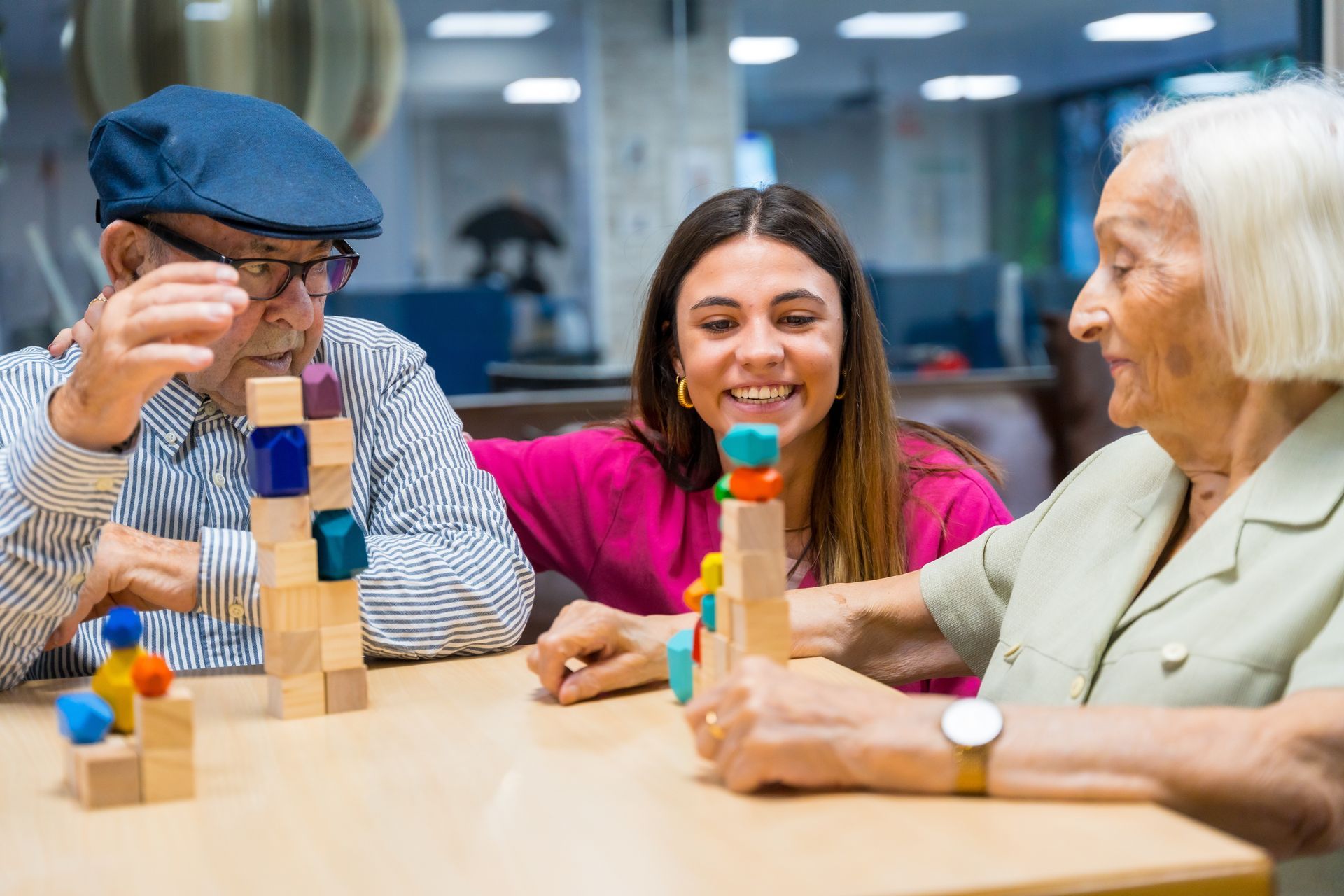BLOG
The Importance of Social Connections During the Winter Months for Seniors
As the winter months approach, seniors often face increased challenges related to social isolation. Shorter days and colder temperatures can limit outdoor activities, leading to reduced social interactions. This decrease in engagement can significantly impact mental and physical health. Understanding the importance of social connections during this season is crucial for promoting overall well-being among seniors.
At Assured Senior Living, we recognize the vital role that social connections play in enhancing the quality of life for our residents. Our communities are designed to foster meaningful interactions, ensuring that seniors remain active and engaged, even during the colder months.
Understanding the Impact of Winter on Senior Socialization
Winter presents unique challenges that can hinder seniors' ability to maintain social connections. Inclement weather conditions often make travel difficult, discouraging visits from family and friends. Additionally, icy sidewalks and cold temperatures can pose safety risks, leading seniors to stay indoors more frequently. This increased indoor time can inadvertently result in reduced social interactions and heightened feelings of loneliness.
The lack of sunlight during winter months can also contribute to seasonal affective disorder (SAD), exacerbating feelings of depression and isolation. Seniors may find it challenging to participate in outdoor activities they once enjoyed, limiting their social engagement opportunities. Moreover, the post-holiday period can intensify feelings of loneliness as festive gatherings dwindle and routines return to normal. Recognizing these factors is essential in addressing the social needs of seniors during winter.
Assisted living communities can mitigate these challenges by providing safe and accessible environments for socialization. Organizing indoor activities and events can encourage residents to engage with one another, fostering a sense of community. Ensuring that common areas are warm and inviting can also make these spaces more conducive to social interactions.
Family members and caregivers should also be aware of the increased risk of isolation during winter. Regular communication, whether through phone calls, video chats, or in-person visits when possible, can provide essential emotional support. Encouraging seniors to participate in community activities or clubs can also expand their social networks. Collaborative efforts between families and assisted living communities are key to ensuring seniors remain connected during the colder months.
The Health Implications of Social Isolation and Lack of Connections
Social isolation has been linked to numerous adverse health outcomes in seniors. Studies have shown that loneliness can increase the risk of developing conditions such as heart disease, hypertension, and cognitive decline. A lack of social interaction can also lead to decreased physical activity, further exacerbating health issues. Understanding these implications underscores the necessity of fostering social connections for seniors.

Mental health is profoundly affected by social isolation. Seniors experiencing loneliness are more susceptible to depression and anxiety. The absence of regular social engagement can lead to feelings of worthlessness and decreased self-esteem. Addressing these mental health concerns requires creating opportunities for meaningful interactions and emotional support.
Cognitive health is another area impacted by isolation. Engaging in social activities has been shown to stimulate the mind, potentially delaying the onset of dementia and other cognitive impairments. Conversely, isolation can accelerate cognitive decline due to the lack of mental stimulation. Encouraging participation in group activities, discussions, and games can help maintain cognitive functions.
Social connections also benefit physical health. Seniors who engage socially are more likely to participate in physical activities, which can improve mobility and overall health. Group exercises or dance classes promote physical well-being and provide social interaction opportunities. Incorporating such activities into daily routines can enhance both physical and social health.
Assisted living communities are uniquely positioned to address these health implications by offering structured social programs. Regularly scheduled events, clubs, and group outings can provide residents with consistent opportunities for engagement.
Strategies to Foster Social Connections in Winter
Effective strategies to promote social connections during winter are essential for senior well-being. One approach is organizing indoor group activities that cater to diverse interests, such as art classes, book clubs, or music sessions. These activities provide structured environments for socialization and personal growth, ensuring a variety of options that can appeal to a broader range of residents and encourage more participation.
Technology can also serve as a valuable tool in maintaining connections. Facilitating virtual gatherings or teaching seniors to use video conferencing platforms can help them stay in touch with loved ones. Online classes or virtual tours can offer new experiences without the need to venture outdoors. Embracing technology can open new avenues for engagement and learning.
Intergenerational programs have been shown to reduce feelings of isolation among seniors. Regular interactions with younger generations provide residents with new social opportunities. These relationships can lead to long-lasting friendships, significantly improving residents' overall happiness.
Creating cozy communal spaces within assisted living facilities can encourage spontaneous social interactions. Comfortable seating areas with warm lighting and accessible amenities invite residents to gather informally. Designing these spaces to be inviting can naturally promote socialization. Regularly updating and maintaining these areas ensures they remain appealing and functional.
The Role of Assisted Living in Combating Isolation
Assisted living communities play a crucial role in fostering social connections among seniors, especially during the winter months. These environments offer structured activities and events designed to keep residents engaged.
Staff members are instrumental in facilitating social interactions. They can encourage residents to participate in group activities, introduce them to peers with similar interests, and provide emotional support. Their role extends beyond caregiving as they help create a sense of belonging within the community. This personalized attention helps seniors feel valued and connected.

Transportation services provided by assisted living communities can further enhance social engagement. Safe and reliable transportation allows seniors to attend off-site events, visit family members, and participate in community activities.
Dining experiences also contribute to socialization. Communal meals encourage conversation and relationship-building among residents. Assisted living facilities can enhance this by organizing themed dinners, cooking demonstrations, or group meal preparations. These shared experiences foster connections and create a sense of community.
Access to on-site wellness programs ensures that residents can stay physically, mentally, and socially engaged. Exercise classes, meditation sessions, and educational workshops provide structured opportunities for interaction. Encouraging participation in these programs promotes holistic well-being and strengthens social networks.
Encouraging Family Involvement in Social Engagement
Family members play a vital role in supporting the social well-being of their senior loved ones. Regular visits and communication help reinforce emotional bonds. Scheduling consistent in-person visits or virtual calls can prevent feelings of isolation. Families should remain proactive in maintaining strong connections with their elderly relatives.
Incorporating family events into assisted living programs encourages multigenerational interactions. Holiday celebrations, game nights, and shared meals can unite families and residents. These gatherings create meaningful experiences and enhance seniors’ emotional well-being. Facilities can support this by organizing family-friendly events throughout the year.
Encouraging seniors to share their life stories with family members fosters deeper connections. Storytelling allows them to reflect on their experiences while strengthening their identity. This exchange of memories benefits seniors and younger generations, creating lasting bonds. Assisted living communities can facilitate this by hosting storytelling workshops or legacy projects.
Providing educational resources for families on the importance of social connections can improve engagement. Workshops, newsletters, or online resources can offer guidance on supporting senior socialization. Educating families about the effects of isolation helps them take proactive steps to stay connected.
Families should also collaborate with assisted living staff to identify the best ways to keep their loved ones socially active. Open communication between families and caregivers ensures that individual preferences and needs are met. This partnership creates a supportive environment that prioritizes senior well-being.
Prioritizing Social Connections for Seniors' Well-Being
Maintaining strong social connections is essential for seniors' well-being, particularly during winter. Assisted living communities provide the structure and support needed to combat isolation effectively. Through engaging activities, thoughtful design, and family involvement, seniors can enjoy meaningful interactions year-round.
At Assured Senior Living, we understand the importance of fostering social connections for our residents. Our communities are designed to provide safe, engaging, and welcoming environments that encourage meaningful relationships. Through personalized care, structured programs, and community support, we prioritize every individual's emotional and social well-being.
If you or a loved one are seeking a senior living community that values connection and engagement, Assured Senior Living is here to help. Contact us today to learn more about our services and how we can support your loved one’s well-being.















